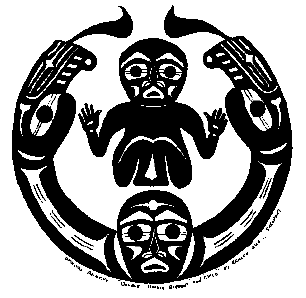About Us
With deep gratitude and respect, we are honoured to be learning and unlearning on the ancestral and unceded lands of the xʷməθkʷəy̓əm (Musqueam), Sḵwxwú7mesh Úxwumixw (Squamish Nation) & səlilwətaɬ (Tsleil-Waututh Nation).
Grandview/¿uuqinak’uuh Elementary School, located in the Grandview Woodlands community in East Vancouver, currently enrolls 138 students in grades Kindergarten through 7. We are proud to have a diverse student population represented by many races and cultures. Grandview was named for the view obtained from the heights rising on the eastern shores of False Creek. In early June 1991, a potlatch was held at the school gymnasium to honour the addition of the Indigenous name “¿uuqinak’uuh” (pronounced oo-keen-a-coo), a Nuu-chah-nulth word meaning “grand view”.
Grandview/¿uuqinak’uuh school has diverse learners with a wide range of learning styles, various cultural and language backgrounds, and a healthy acceptance of others. It is our diversity that has led to a uniquely inclusive culture, one that celebrates and welcomes families and community. Many of the students at Grandview/¿uuqinak’uuh (48%) identify as Indigenous. 18% of the students have a recognized Ministry Designation for learning differences, and all instruction is adapted to the unique learning style of each student. Grandview/¿uuqinak’uuh uses a tiered level of support to ensure that students who are struggling have access to small groups and/or individualized support as needed.
The students respond well to structured routines and to the adults with whom they can develop a relationship of trust. We will continue to develop Trauma-Informed practices. Grandview/¿uuqinak’uuh students demonstrate a powerful sense of community. Students feel safe here at the school, and connections between home and school are building with each passing year. There is a strong sense of community among the students. Students care for and look out for one another. When working with staff, the students need strong relationships built on trust to foster learning. Students enjoy learning about each other’s cultural background and appreciate personalized learning. Grandview/¿uuqinak’uuh students enjoy community-based connections and the learning opportunities they receive from family members, elders, and community mentors.
As a school team, we are taking steps toward decolonizing and Indigenizing some of our practices and focusing on Truth and Reconciliation Calls to Action. It is important that all adults at our school use a trauma-informed lens with the students.
Our staff are dedicated to supporting the learning and social emotional needs of all our students. They are committed to enhance their own knowledge about Indigenous culture and history, trauma Informed practices, executive functioning, and flexible thinking. Staff members routinely participate in Collaborative Inquiry groups. Staff have participated in Mathematical Thinking and Literacy Skills Workshops. We have a group currently working on phonics instructions for struggling readers and writers in grades 2-7 so we can support students in building their confidence and skill.
We organize events that celebrate our unique and diverse school community. The two that we are extremely proud of is the Pride Parade, and the Indigenous Day event, with activities for the students and families.
Caregivers are invited for monthly morning coffee and together with the PAC (Parent Advisory Committee) we are re- introducing PAC sponsored evening meals and get togethers. We value good relations with the parents and caregivers in the Grandview/¿uuqinak’uuh community.
We will continue with our commitment to S.O.A.R (Supportive, Open hearted, Awesome Attitude, Respectful). Our schoolwide Positive Behaviour Support Model has been successful. We celebrate schoolwide milestones and individuals have opportunities to receive incentives and receive a call home from administrator praising their effort.
We are in partnership with the Community Links Team out of Britannia. They support students with after school programs such as Kidsafe, Basketball, Science Club and Writer’s Exchange. We are also fortunate to be in partnership with Fresh Roots. They support the students weekly throughout the school year with our school garden providing Science lessons and nutritional guidance. Students, using Indigenous resources, learn about Indigenous plants and medicines, they plant and grow food, and harvest what they grow. Students are taught to use the harvest and create salad bars so that they can practice cooking skills.

